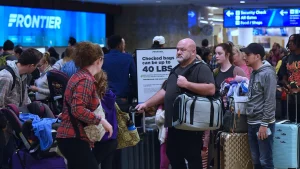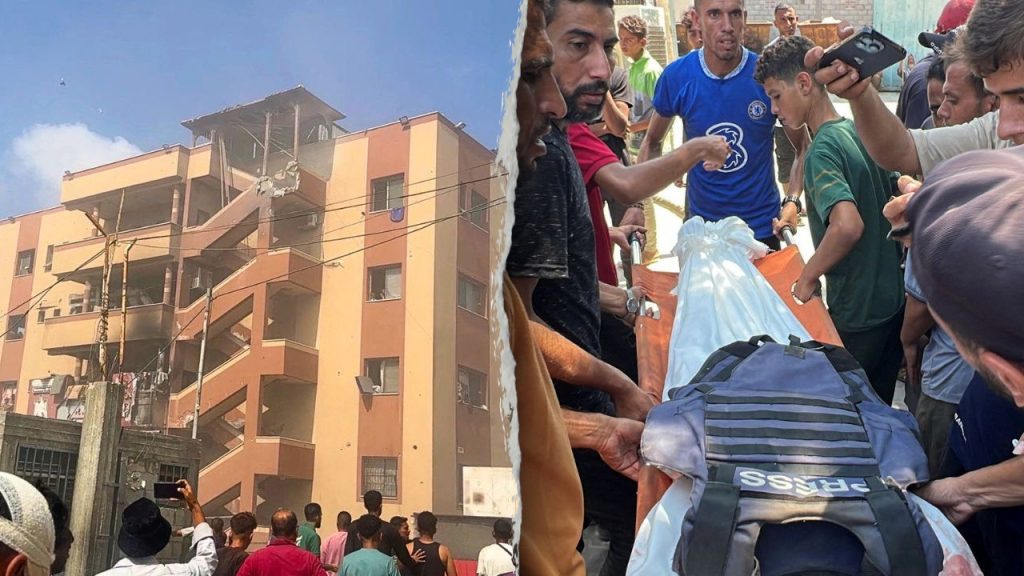Israel Investigates Gaza Hospital Strike that Killed Journalists, Civilians
In a somber development from the ongoing Israel-Hamas conflict, Prime Minister Benjamin Netanyahu announced an investigation into a military strike that hit Nasser Hospital in southern Gaza’s Khan Younis on Monday. The incident claimed at least 20 lives, including five journalists working for international news organizations such as Reuters, The Associated Press, and Al Jazeera. The tragic event has once again highlighted the devastating human cost of the war and raised questions about the protection of civilians and press in conflict zones.
“Israel deeply regrets the tragic mishap,” Netanyahu’s office stated, emphasizing that Israel values the work of journalists, medical staff, and civilians caught in the crossfire. The Prime Minister drew a distinction between Israel’s military objectives and the unintended casualties, stating, “Our war is with Hamas terrorists. Our just goals are defeating Hamas and bringing our hostages home.” This sentiment was reinforced by IDF Spokesperson Brigadier General Effie Defrin, who described the “extremely complex reality” of combat operations in Gaza, where Hamas fighters allegedly use civilian infrastructure, including hospitals, as shields for their operations. Defrin promised a thorough and professional investigation into the incident, acknowledging the international obligations Israel has to uphold even during wartime.
According to reports from Palestinian health officials, the hospital was struck by two artillery shells in quick succession. Israeli media suggested that Israeli troops had fired at the hospital targeting a Hamas surveillance camera positioned on the roof. The first strike killed Reuters contractor Hussam al-Masri, who was working near a live broadcasting position on an upper floor. Tragically, when rescue workers and medical personnel rushed to help, a second strike hit the same location, killing additional journalists and first responders. The other journalists who lost their lives were identified as Mariam Abu Dagga (Associated Press freelancer), Mohammed Salama (Al Jazeera), Moaz Abu Taha (freelancer who contributed to Reuters), and Ahmed Abu Aziz. Another Reuters photographer, Hatem Khaled, was wounded but survived the attack.
The incident comes amid increasing concerns about the safety of journalists covering the Gaza conflict, which has now claimed the lives of dozens of media workers since hostilities erupted in October 2023. International press freedom organizations have repeatedly called for greater protection for journalists operating in conflict zones, particularly in Gaza where the constraints on movement, limited access to safety equipment, and the intensity of military operations create extraordinarily dangerous conditions. “Reporting from an active war zone carries immense risk, especially in a war with a terrorist organization such as Hamas,” Defrin acknowledged in a statement that also defended Israel’s military conduct while promising accountability for Monday’s deaths.
This hospital strike exists within a broader context of international scrutiny over civilian casualties in Gaza. The war, now in its tenth month, has seen numerous incidents where civilian infrastructure including hospitals, schools, and residential buildings have been damaged or destroyed. Israel has consistently maintained that it takes extensive measures to minimize civilian harm while targeting Hamas fighters and infrastructure, a claim that Hamas and Palestinian officials dispute. The complexity of urban warfare in densely populated Gaza, combined with allegations that Hamas embeds its fighters and command centers within civilian areas, creates what military analysts describe as one of the most challenging combat environments in modern warfare. This complexity, however, does not diminish the humanitarian tragedy unfolding for Gaza’s civilian population.
The deaths of journalists at Nasser Hospital underscore the vital and dangerous work that media professionals undertake to document conflicts and inform the world. Reuters, the Associated Press, and Al Jazeera—all organizations that lost staff in Monday’s strike—have played crucial roles in providing on-the-ground reporting from Gaza despite extraordinary challenges. These journalists work in conditions where electricity is scarce, communications are frequently disrupted, personal safety is constantly at risk, and the psychological toll of witnessing human suffering is immense. Their commitment to bearing witness, even at great personal peril, serves a fundamental function in conflict zones: providing the outside world with information needed to understand the human impact of war and hold all parties accountable for their actions. As Israel conducts its investigation into the hospital strike, the international community awaits answers about how such tragedies can be prevented in the future, even as the broader conflict shows few signs of reaching a resolution that would bring safety to journalists, medical workers, and civilians alike.















